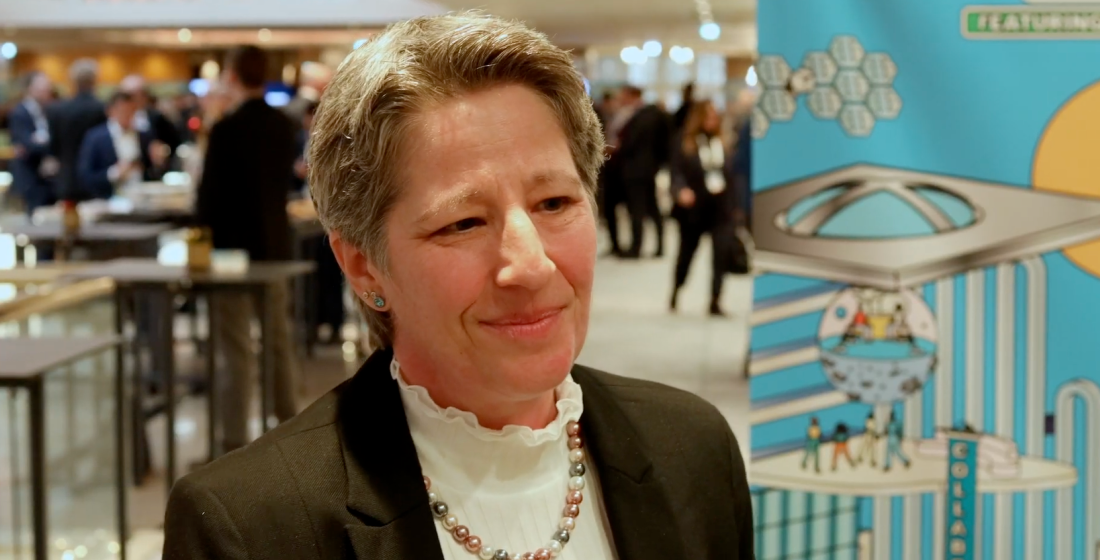“We’re not MI6” – why banks and the trade ecosystem need holistic screening technology
No organisation wants to end up blacklisted or facing criminal charges and reputational damage, but how can a bank, lender or insurer know that what it has financed or underwritten is entirely compliant? Simon Ring, global head of maritime trade technologies & ESG at Pole Star outlines why banks and the trade ecosystem needs holistic screening technology.

Over the past few years, sanctions compliance has become such a minefield that all trade finance organisations need access to real-time technology more than ever before to fully assess the risks in each transaction from start to finish.
The real turning point came with last year’s OFAC* (Office of Foreign Assets Control) sanctions advisory, targeting the wider maritime industry. Although non-binding, it brought ship owners, operators, managers, charterers, brokers, flags, ports, shippers, freight forwarders and commodity traders under the same requirements as financial institutions and insurers. In fact, almost anyone involved in a trade transaction was told unambiguously to improve their compliance programmes to avoid breaching US sanctions.
OFAC’s stance, and that of other regulators who followed suit such as the UK’s OFSI, has vastly elevated the importance of end-to-end due diligence and monitoring right across the financial and organisational ecosystem that supports every transaction. Every organisation with exposure to maritime trade is now in danger of investigations and penalties spurred by breaches of regulation for which it may not think itself responsible.
OFAC means business
OFAC means what it says. In June last year, for example, it took action against a Panamanian-flagged crude oil tanker owner after the vessel reportedly delivered 515,000 barrels of Venezuelan oil to Qingdao and engaged in illicit ship-to-ship transfer of more oil near Malaysia.
In December, OFAC designated six companies and four vessels for violating UN sanctions through participation in the prohibited North Korean coal trade. This year OFAC sanctioned and placed on the Specially Designated Nationals list, 14 entities and six vessels for their involvement in trade with Venezuela. The US Department of Justice also brought charges against an individual alleged to have used front companies and false documentation to send money through the US financial system in support of shipments to North Korea.
How do you screen and monitor?
No organisation wants to end up blacklisted or facing criminal charges and subsequent reputational damage, but how can a bank, lender or insurer know that what it has financed or underwritten is entirely compliant? How can financial institutions establish that vessels carrying their customers’ goods or materials have no history of illicit activity such as offshore ship-to-ship cargo transfer that may attract OFAC attention? Many organisations engaged in international trade will rightly respond to this by saying “We’re not MI6 or the CIA – how can we know who to trust or which vessels have a history of illegal or suspicious activity?”
Due diligence is a necessity – as is proving that you have done it
Nonetheless, trade organisations and P&I clubs such as The Shipowners’ Club, say owners must take due diligence seriously, screening all parties involved as well as vessels, using EU, OFAC and UN databases. This is sound advice. Trade banks, lenders and charterers need to screen the entire ecosystem behind a transaction and shipment.
There is, however, no consensus on what constitutes due diligence, with OFAC seemingly happy for a certain vagueness to create a deterrent effect. The situation is complicated even further by significant policy differences between nations and trading blocs. The EU and the US differ on their approaches to sanctions on Iran, for example.
What is certain is that organisations must keep a record of everything they do if they are to demonstrate due diligence. As well as screening the parties to a transaction against reputable databases, financial organisations must screen vessels and their proposed routes as early as possible using auditable digital solutions to streamline the process.
Technology streamlines compliance screening
Seeing as manually conducting due diligence processes is time-consuming and highly vulnerable to human error, technology is essential. The right kind of technology will also provide a tamper-proof audit trail to convince authorities that due diligence has been conducted. Organisations should be alert to histories of infringement but also to the indicators of suspicious activity such as complex ownership structures, activity in high-risk geographical areas and reporting gaps in a vessel’s compulsory AIS tracking system.
Screening must take into account the full range of activity that illegal operators will engage in, such as changing the names of vessels. Countering this, for example, requires the ability to note a vessel’s characteristics and identify it from its unique IMO number.
Once a vessel is underway monitoring must continue in real-time, using AIS and satellite systems to show all parties and regulators that the shipment is compliant with sanctions rules. OFAC policy is to look back 24 months and find gaps in the AIS monitoring of ships’ movements. But it offers little guidance as to what it considers a suspicious gap. For this reason, organisations should also have access to hybrid monitoring technology that includes alternative satellite data such as Inmarsat in case AIS transceivers are switched off or malfunction. Hybrid monitoring will prove a vessel was where it claimed to be, even if its AIS identity is spoofed by another vessel undertaking nefarious activities. It is even possible now to use satellite images to monitor the draught of a vessel as an indicator of whether a suspicious cargo transfer has occurred during a dark period.
Reduction of false positives
One of the chief advantages of using technology for screening and monitoring is the significant reduction in false positives through the ability to analyse extensive databases rapidly. Not all complex ownership structures are suspicious, for example – they are often employed for tax reasons. There are also legitimate causes of AIS malfunction, including congestion in transit bottlenecks.
With the right technology at their fingertips, all the parties to a transaction can access this information in seconds, assessing their risk without spending hours trawling through documentation or costly reports from third-party providers. The ability to screen and monitor has become a vital capability for all organisations in the global trade supply chain, but especially for the financial institutions, lending platforms and insurers with exposure to maritime trade.
With sanctions having become such an important weapon in international relations and with the penalties for infringement being so severe, organisations need to embrace screening and monitoring technology to remain on the right side of the regulators. Technology is the key way to ensure that these institutions do not lose out on important opportunities through excessive caution. Apart from making life more difficult for sanctions-busters, legitimate organisations in the trade ecosystem have so much to gain from the adoption of advanced screening and monitoring technology, with time savings, increased efficiency and minimised risk only being the tip of the iceberg.
*OFAC is a financial intelligence and enforcement agency of the US Treasury Department.





